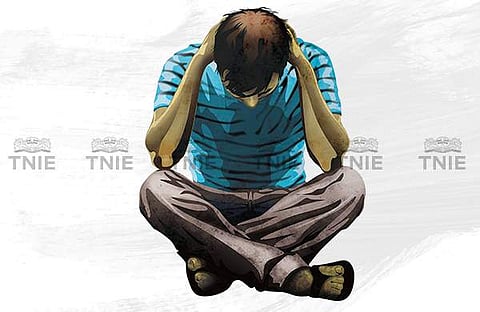Mental health disorders, caregiver challenges in rural India highlighted in new report
A new survey report reveals that the majority of husbands in rural areas look after their pregnant wife followed by mother-in-law and mother in rural areas. The report recommends household-level intervention to build skills and capacity for better care of both maternal and new-born babies.
The study reveals that in nearly two-thirds (62.7%) of the cases, it was the husband who took care of the pregnant women at home followed by mother-in-laws (50%) and mothers (36.4%).
The report also highlights a bleak picture of rural health systems such as non-functional health care centres, absence of diagnostic facilities to treat major and minor ailments and accessibility to affordable medicines in rural areas. Moreover, it also underlines the rising mental health issues across genders.
The report ‘State of Healthcare in Rural India Report-2024’ prepared by non-profits Transform Rural India Foundation and Development Intelligence Unit after surveying 21 states, recommend shifting away from traditional health delivery system to the ‘Neighbourhood of Care’ model where family members, friends or neighbourhoods get engaged in primary care of the patients.
The model emphasizes on the empowerment and capacity building of individuals, family members (caregivers) and community members in terms of knowledge and skills of to take and provide care efficiently and scientifically.
The survey shows that the majority (95.7%) of the bedridden patients both elderly and non-elderly seek care at home from a family member, predominantly female (72.1%), highlighting the need for caregiver training on home-based care. In case, the caregiver is not available within the family then they seek support from their neighbourhood (neighbours, friends, relations living nearby, etc.).
“It is important to integrate these interventions into every health care program and social initiatives,” said Dr. Maj Gen (Prof) Atul Kotwal, Executive Director of, National Health Systems Resource Centre.
There is a lack of diagnostic facilities to get blood tests or imaging done, in rural areas mostly because of shortage of trained personnel. Over 60% of the rural population do not get diagnostic facilities within their commutable distance.
In addition to it, accessibility to affordable medicine at government medical stores comes as a major challenges for the rural population. Around 88% of respondents found difficulty in accessing subsidized medicines at Pradhan Mantri Jan Aushadhi Kendra.
The prevalence of mental health disorders in India has risen steadily in recent years. The study reveals that 45% of the respondents across genders most of the time have ‘anxiety’ and ‘worry’ that impact their state of mind. The data reveals that anxiety and worry impact mental health much more among the older cohorts than those who are younger. Nevertheless, 40% of the younger cohort admittedly feeling stressed and anxiety regularly is a serious concern.
Sanitation and environmental hygiene are important interventions for disease control in a community. The study reveals poor sanitation and environmental hygiene in the study population. One in five reported no drainage system in their villages and only 23% have a covered drainage network system in their villages. 43% of households did not have any scientific system of waste disposal and they ended up with dumping their waste everywhere.
Only 11% burn the dry waste and convert their wet waste into compost. 28% reported that the local panchayat has made plans to collect household waste.

